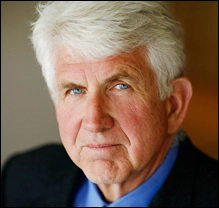
The 2022 ACM A.M. Turing Award often referred to as the “Nobel Prize in Computing,” went to Robert (Bob) Melancton Metcalfe for the invention, standardization, and commercialization of Ethernet.
Ethernet was first invented in 1973 and it ran at 2.94 megabits per second, about 10,000 times faster than the terminal networks it would replace. While he was working at the Xerox Palo Alto Research Center (PARC), Matcalfe circulated a memo that described a “broadcast communication network” to connect some of the first computers within a building.
Whereas the first design proposed the network over a coaxial cable, this would be replaced with “communication over an ether,” which made the design adaptable to future innovations in media technology to replace the coaxial cable as the “ether.”
Metcalfe drew upon his knowledge of ALOHAnet, a pioneering computer networking system created at the University of Hawaii, in the design of the Ethernet. He then recruited David Boggs, a co-inventor of Ethernet, to help build a 100-node PARC Ethernet.
After leaving Xerox in 1979, Metcalfe remained the chief evangelist for Ethernet and continued to guide its development while working to ensure industry adoption of an open standard.
Metcalfe is an Emeritus Professor of Electrical and Computer Engineering (ECE) at The University of Texas at Austin and a Research Affiliate in Computational Engineering at the Massachusetts Institute of Technology (MIT) Computer Science & Artificial Intelligence Laboratory (CSAIL).
The winner of the 2021 ACM A.M. Turing Award was John Dongarra of the University of Tennessee and Oak Ridge National Laboratory for pioneering contributions to numerical algorithms and libraries that enabled high-performance computational software to keep pace with exponential hardware improvements for over four decades.
The 2020 award went to Alred Vaino Aho and Jeffrey David Ullman for their work on fundamental algorithms and theory and the 2019 award went to Pixar pioneers Edwin E. Catmull and Patrick M. Hanrahan for advancing computer graphic design.
The award carries a $1 million prize with financial support provided by Google and is named after Alan M. Turing, the British mathematician who articulated the mathematical foundations of computing.
Additional details are available here.






